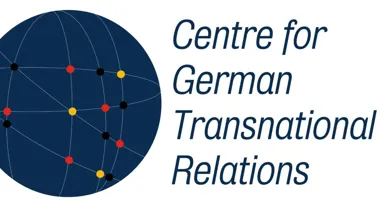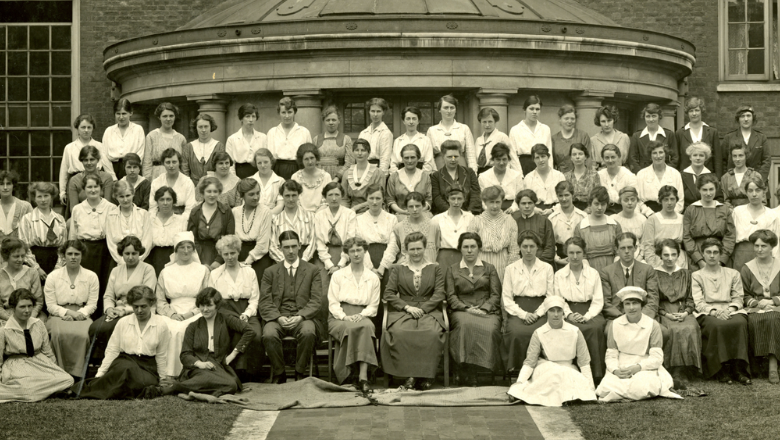
Professor Jim Bjork
Professor of Modern European History
Research interests
- History
Biography
Jim Bjork joined the Department in 2005 as Lecturer in Modern European History. He has previously taught as a Visiting Assistant Professor in the US at the universities of Notre Dame, Rice, and Colgate, and he has held postdoctoral fellowships at the Centre for German and European Studies (Georgetown University) and the Institute of European Studies (Cornell University). Jim received his PhD from the University of Chicago.
From 2012 to 2015, Jim Bjork served as the first director of the Liberal Arts BA at King’s.
Research interests and PhD supervision
- the social history of religion in modern Europe
- history of nationalism in modern Europe
- supranational identifications in modern Central Europe, especially Germany and Poland.
Jim Bjork’s primary research and teaching interests are the social history of religion and the history of nationalisation in modern Europe. His current research explores the relationship between national exceptionalism and the idea of the ‘Christian West’ in shaping the religious revival in Poland during the 1960s and 1970s. His book, ‘Neither German nor Pole: Catholicism and National Indifference in a Central European Borderland, 1890-1922’, which examines the role played by everyday religious life in frustrating the formation of clearly defined national communities in Upper Silesia, was published by the University of Michigan Press in 2008.
For more details, please see his full research profile.
Teaching
Jim Bjork teaches a range of modules at undergraduate and postgraduate level, with a particular focus on the history of East-Central Europe, the social history of religion, and the history of empires and nations.
Expertise and public engagement
Jim Bjork has served as the secretary of the German History Society (2011 to 2015) and was recently elected to the board of the Polish Studies Association (2017).
He has been interviewed by various Polish media outlets about his book, and his views on prospects for Silesian autonomy/independence:
Research

Centre for German Transnational Relations
The centre examines Germany's changing transnational role in the economic, political and cultural spheres. We study how the recent rise of Germany to a position as a 'reluctant hegemon' shapes European economies as well as the world economy.
Empires and Decolonizations Research Hub
Aiming to bring together those at King’s interested in the history of empires, across all periods - ancient and modern.
News
New interactive platform explores King's history and future
King’s Past has launched a new platform to chart the development of King’s College London from its creation in 1829 to the present day.

Events

Warsaw Rising 1944! Panel - Reflections on History, Significance and Memory on the 80th Anniversary
The panel will discuss the course of the Warsaw uprising in 1944, personal experiences, BBC broadcasts and how it is remembered.
Please note: this event has passed.
Features
What Poland's election tells us about a new generation of right-wing voters
As we approach the August presidential inauguration of the recently elected Karol Nawrocki in Poland, Professor Jim Bjork delves into generational dynamics of...

Moving Hearts: Exploring 'the right to belong' in the UK
Hundreds of people in the capital have joined together to share their thoughts on belonging and migration by sculpting clay hearts and engraving messages of...

Research

Centre for German Transnational Relations
The centre examines Germany's changing transnational role in the economic, political and cultural spheres. We study how the recent rise of Germany to a position as a 'reluctant hegemon' shapes European economies as well as the world economy.
Empires and Decolonizations Research Hub
Aiming to bring together those at King’s interested in the history of empires, across all periods - ancient and modern.
News
New interactive platform explores King's history and future
King’s Past has launched a new platform to chart the development of King’s College London from its creation in 1829 to the present day.

Events

Warsaw Rising 1944! Panel - Reflections on History, Significance and Memory on the 80th Anniversary
The panel will discuss the course of the Warsaw uprising in 1944, personal experiences, BBC broadcasts and how it is remembered.
Please note: this event has passed.
Features
What Poland's election tells us about a new generation of right-wing voters
As we approach the August presidential inauguration of the recently elected Karol Nawrocki in Poland, Professor Jim Bjork delves into generational dynamics of...

Moving Hearts: Exploring 'the right to belong' in the UK
Hundreds of people in the capital have joined together to share their thoughts on belonging and migration by sculpting clay hearts and engraving messages of...

